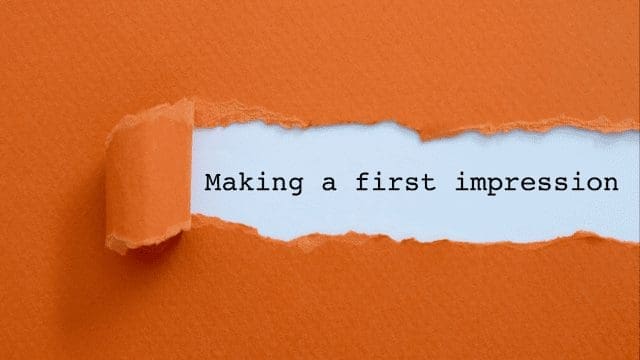How good are you at first impressions? Here are important tips and advice to keep in mind the next time you’re meeting someone new.
Discover how to make a lasting first impression with these essential tips. Learn the psychology behind first impressions and how to use it to your advantage in social and professional settings. Understanding the importance of first impressions, the types of first impressions, and tips for making a positive first impression will help you make a strong impact. Additionally, the role of body language, maintaining eye contact, and preparation are crucial in creating a lasting first impression. Recognize the impact of first impressions in professional settings and gain insights into the psychological and cultural differences that influence first impressions.
The 7- Second Rule
The 7-second rule refers to the brief window of time during which people form initial impressions about others based on limited information. In this critical timeframe, individuals assess various nonverbal cues such as body language, facial expressions, and attire to make snap judgments. These first impressions can have a lasting impact, influencing how others perceive one’s competence, trustworthiness, and likability. Therefore, it is crucial to be aware of the power of those initial seconds and strive to make a positive and memorable impression through confident and professional demeanor.
Understanding the Importance of Initial Encounters
The psychology behind how people form opinions about others is fascinating. Research shows that individuals make judgments within seconds of meeting someone new. This rapid assessment is based on various factors, including appearance, body language, and communication skills. Understanding these elements can help you make a favorable impression.
Types of Initial Assessments
People often form opinions about various traits such as trustworthiness, competence, and likability. These assessments are frequently based on facial appearances and simple behaviors. For instance, observing someone take an elevator up one flight might lead to an inference about their work ethic. These judgments involve both explicit and spontaneous inferences.

Tips for Making a Positive Impact
- Dress Appropriately: Your appearance is the first thing people notice. Dressing suitably for the occasion shows respect for the event and the people you’re meeting.
- Body Language: Non-verbal cues such as eye contact, posture, and facial expressions play a significant role in how others perceive you. Ensure your body language conveys openness and confidence.
- Be Punctual: Arriving on time demonstrates reliability and respect for others’ time.
- Effective Communication: Clear and concise communication is key. Listen actively and respond thoughtfully to engage in meaningful conversations.
- Confidence: Self-assurance is attractive and reassuring. Believe in yourself and your abilities to make a positive impact.
The Role of Non-Verbal Communication
Body language is a powerful tool in making a positive impact. Here are some tips to ensure your non-verbal cues convey confidence and openness:
- Maintain Eye Contact: This shows that you are engaged and interested in the conversation.
- Smile: A genuine smile can make you appear more approachable and friendly.
- Firm Handshake: A firm handshake conveys confidence and professionalism.
- Open Posture: Avoid crossing your arms or legs, as this can appear defensive. Instead, keep an open and relaxed posture.
Building Confidence for Encounters
Confidence is key to making a positive impact. Here are some ways to build your self-assurance:
- Practice: Rehearse your introduction and key talking points before important meetings or social events.
- Positive Self-Talk: Replace negative thoughts with positive affirmations to boost your self-esteem.
- Preparation: Being well-prepared for the interaction can reduce anxiety and increase your confidence.
The Impact in Professional Settings
Making a good impression is particularly important in professional settings such as job interviews. Employers often make quick judgments about candidates based on their initial perceptions, which can influence hiring decisions. Research has shown that employers tend to ask questions that confirm their initial impressions and treat candidates in ways that are consistent with these perceptions. Therefore, making a positive impact can significantly enhance your chances of success in professional environments.

Psychological Insights into Forming Opinions
How we form opinions about others is influenced by various psychological factors. For instance, the halo effect can cause people to generalize a positive impression from one trait to other unrelated traits. Conversely, the fundamental attribution error can make it difficult to change a negative initial perception, even when presented with contradictory evidence. Understanding these psychological principles can help you navigate social interactions more effectively.
Cultural Differences in Forming Opinions
Cultural differences can also play a significant role in how people form opinions about others. For example, research has shown that individuals from different cultural backgrounds may interpret facial expressions and body language differently. Being aware of these cultural nuances can help you make better impressions in diverse settings.
Final Thoughts
Mastering the skill of creating favorable first impressions is imperative as it has the potential to unlock new prospects and establish meaningful connections. By comprehending the psychological factors influencing people’s opinions and employing these actionable suggestions, you can guarantee that you make a positive and enduring influence on every individual you encounter.
#FirstImpressions #SocialSkills #ProfessionalTips #Psychology #PositiveEncounters






